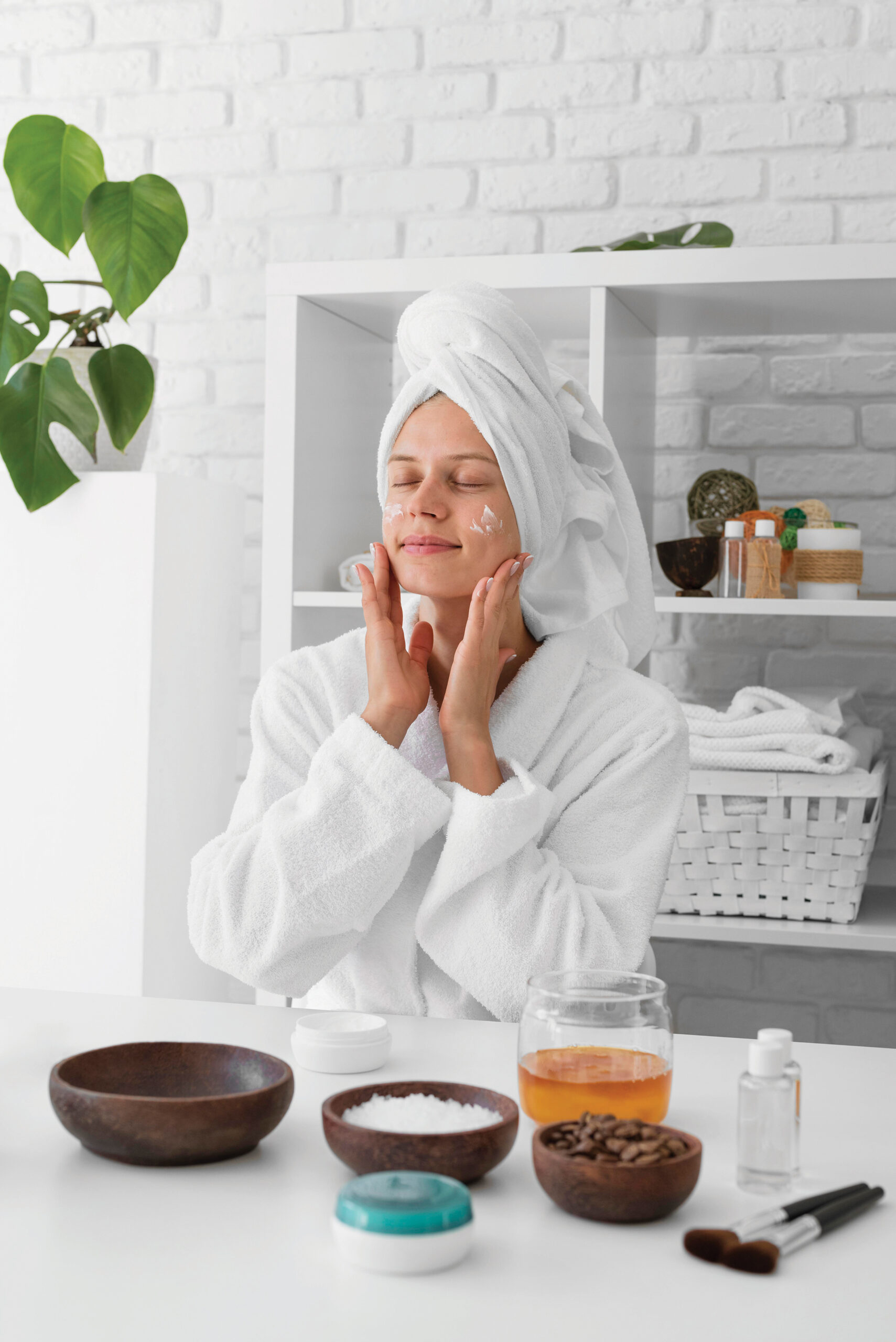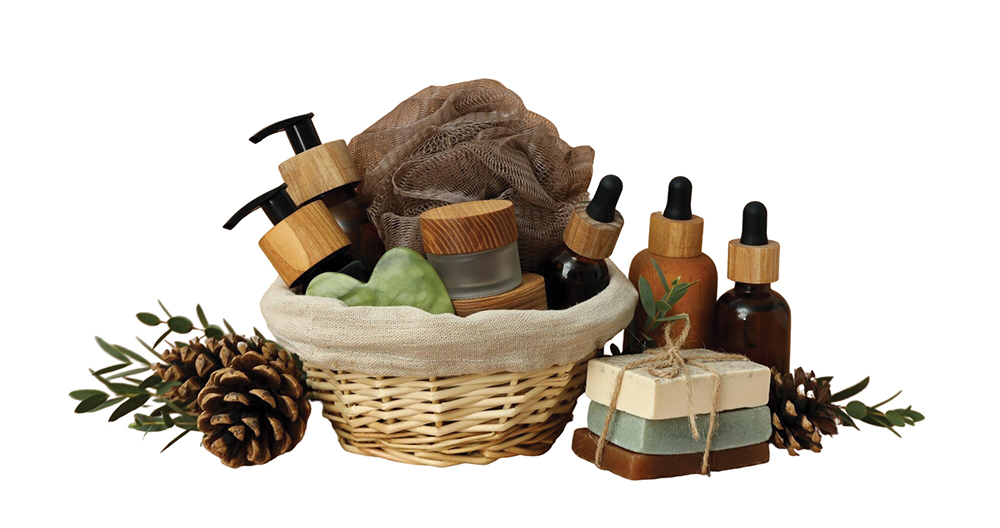Amid global economic uncertainty and soaring luxury brand prices, high-income consumers “are becoming increasingly price-conscious, prioritizing value and quality in their luxury purchases,” said LVMH CEO Bernard Arnault in February. “The luxury industry is navigating highly turbulent times.”
In this shifting landscape, local brands are seizing the opportunity presented by a vast base of consumers who are redefining their luxury preferences and turning toward homegrown alternatives. According to PWC’s Voice of the Consumer 2024 survey, “The Egyptian market, with its large and diverse population, is undergoing significant transformation as consumers become more discerning, cost-conscious and tech-savvy.” The survey added that such evolving consumer preferences foster a notable shift toward supporting local businesses.
The Middle East is no different. According to an article by Vogue Business in 2023, “The spending power of wealthy Arab consumers has long been appreciated by the major global luxury fashion brands. Now, these customers are becoming more exploratory in their shopping — a positive trend opening up new opportunities for niche and emerging brands.”
Meanwhile, consumers are increasingly drawn to personalized products tailored to local tastes. “As I look at the shifting sands of the global luxury landscape, one thing is clear: the world’s new benchmarks for exclusivity and customer experience are being set here in the region, where heritage collides with innovation and tradition dances with modernity.” Bipul Markan, head of research and insights at Assembly MENA, a media agency, noted in May.
To gain insights into Egypt’s evolving local market, Business Monthly conducted a series of interviews with founders of homegrown brands in the beauty and personal care sectors. They shed light on the opportunities they see, the challenges they face, and their ambitions to expand beyond the local market.

Egypt’s potential
PWC’s survey noted that in Egypt, more than 20% of surveyed consumers were open to trying new brands due to innovative and high-quality products, positive reviews, strong reputations, and promotional offers.
The survey added that in Egypt, value for money and quality are key drivers of shifting preferences. In the wider region, “High-quality innovative products, promotional offers, reputation as a trusted brand, and positive reviews were also influential in driving choices of more than 20% of regional consumers.”
Local brands in Egypt typically launch their businesses through social media platforms. The survey showed that “80% of consumers in Egypt agree they have discovered brands through social media, with a significant 90% of those surveyed indicating that advertisements on social media influence purchasing decisions.”
Notably, most local brands now adopt an online-to-offline (O2O) commerce strategy, aiming to bring potential customers from online channels to physical stores, according to a 2024 article by Egypt Today.
The article stressed that the O2O commerce market is “set to hit $422 billion by 2027.”
X factor
In the Egyptian market, local beauty and personal care brands have gained momentum in recent years. According to the Egypt Beauty & Personal Care Market Report 2025-2033, “The proliferation of modern retail formats, such as malls, specialized beauty stores, and online retail platforms, has made beauty products more accessible to a wider range of consumers.”
Recent data by Statista, a data aggregator, showed revenue generated in the beauty and personal care market in Egypt is estimated to reach $7.6 billion in 2025. The largest segment within this market is personal care, which is expected to generate $3.5 billion in 2025.
“The local fragrance market in Egypt is hungry,” said Salma Elkhamisy, founder of Nuit Fragrances. She added that the Nuit was established to cope with changing market dynamics by offering a diverse range of products.
Beyond the Egyptian local market, Elkhamisy said she plans to expand in the Middle East, starting with the U.A.E. and Saudi Arabia. “Consumer tendency and curiosity to discover local brands open the door for us as entrepreneurs to step in and leave a footprint in the local market and beyond,” she noted.
Especially since participating in Shark Tank in November, Nuit has gained momentum and appealed to a wide range of consumers. Despite spurning investors’ offers, the brand’s exposure and visibility have surged following the episode. “I’m so happy with my experience at Shark Tank, but the offers we received did not match our plans,” said Elkhamisy.
Elkhamisy maximizes exposure by “involving customers in the brand’s structure through storytelling on platforms like TikTok while listening to the audience’s ideas and suggestions.”
Given the tough competition in the market, Elkhamisy stressed that what makes a brand stand out is a unique service that can “ensure consumer loyalty and retention.”
Mohamed Shallal, founder of MOCHE, a local brand of natural body care products, plans to expand his presence in the Gulf region and Greece.
Focusing on a small number of items is what makes MOCHE’s products stand out. “Specialization ensures delivering consistently high-quality products with unique characteristics,” said Shallal.
He sees great potential in Egypt, noting “the market is really big and not yet saturated, so it gives the space to several local brands to step in and leave their signature without fearing competition, especially since local brands are always different in what they offer for customers.”
Despite challenges brought on by the currency devaluation, Shallal noted it has significantly benefited local brands as consumers begin to recognize the value and potential of domestic manufacturers.
He added that demand in Egypt remains strong, largely due to its large population. In the Gulf region, international brands are more easily accessible, he said, “creating a highly competitive environment that makes it more challenging for local brands to gain a foothold.”
Heba El Kaissy, founder of the emerging local perfume brand ByLoba, emphasized the importance of striking the right balance between affordability and quality. Her approach to offering high-quality perfumes at accessible prices is what sets her brand apart in the market.
Mahmoud Refaie, founder of Siwa Fragrances, a premium local brand, highlighted the immense potential in the market. “The niche for high-quality, locally produced fragrances remains vastly underserved,” he said. “Few brands in the market truly uphold exceptional standards in both scent formulation and packaging aesthetics.”
Refaie explained, “My journey began as a consumer, giving me firsthand insight into what discerning fragrance enthusiasts seek.” He added that “As the brand grew, I engaged with a broader range of customers, deepening my understanding of their preferences and expectations. This insight enabled me to craft an offering that strikes the perfect balance between affordability and superior quality.”
Mahmoud Sameh Abdlnabi, co-founder of Hope — a brand of scented candles — highlighted that what sets his products apart is their rare and distinctive designs. Unlike many well-known global and local brands that use paraffin wax and its derivatives, Abdlnabi uses natural soy wax, prioritizing safety and sustainability, given that “soy wax is eco-friendly and completely safe for human health, which is an essential factor.”
Abdelnabi focused on developing his own signature style in candle-making, driven by the market’s demand for local brands “to offer distinctive products that capture customer interest.”

Market hurdles
Like other sectors, founders of beauty and personal care brands face challenges. El Kaissy said packaging is a major issue in Egypt, affecting consistent supply, which in turn can influence a brand’s image and identity.
Elkhamisy had the same concern, emphasizing that consistency in packaging is essential to avoid confusing customers. “The brand should solidify its identity through unique packaging and secure a sufficient bottle supply to last at least a year in advance,” she said.
ElKhamisy further emphasized that consumers should be aware that pricing can be influenced by various factors, including the cost of imported fragrance oils used in perfumes, which contribute to the overall cost of products.
For Siwa fragrances, scaling the brand was the main challenge. “Growth is an ongoing process, presenting new challenges at every stage. One significant milestone was transitioning from a home-based operation to a dedicated laboratory, ensuring a more controlled production environment,” said Refaie.
He explained that pricing is strategically set based on market benchmarks, “while considering fluctuations in raw material costs, currency exchange rates, packaging intricacies, and labor expenses.”
For Shallal, overcoming the consumer perception that local brands are of lower quality compared to international ones remains a challenge. Additionally, brand sales are another critical hurdle. “Sales tend to decline during off-peak seasons such as Ramadan and the back-to-school period, when household budgets are redirected away from spending on skin and body care products.”
Beautiful market
Many see the Middle East’s beauty market potential as unmatched for niche and emerging local brands. “Consumers seek brands that value and use local resources, preserve indigenous traditions, and support local economies,” said Jane Henderson, chair of beauty and wellness at the Mintel Group in July 2024. “Local ingredients often offer unique and distinctive qualities, contributing to a more authentic and memorable product experience, which of course promotes repeat purchases.”
According to the 2024 Middle East Beauty Market Report, published by Beautyworld and BeautyMatter, “Women in the Gulf region (Bahrain, Kuwait, Oman, Qatar, Saudi Arabia and the U.A.E.) spend an average of $63 per month on makeup and $52 on skincare.”
Local brands across the region have the opportunity to leave a remarkable footprint if they utilize the right approach. “When launching in the Middle East or developing products specifically for the market, success requires considering the region’s unique cultural preferences, climate conditions, and beauty standards,” according to the report.
Notably, “The region is developing its identity and promoting the development of local brands, some of which are starting to make their market globally,” said Mohammed Dhedhi, partner, consumer and retail practice, Kearney Middle East and Africa, in an October article by Fast Company in October.
While the GCC is an appealing market for expansion, Dhedhi said the future of retail in the GCC lies in bringing locally inspired tastes and preferences to the global stage. “Large brand operators and entrepreneurs alike are leveraging the uniqueness of the region’s residents, locals, and expats to create compelling offers that are succeeding locally, but also beginning to resonate globally. We expect this trend to continue.”




